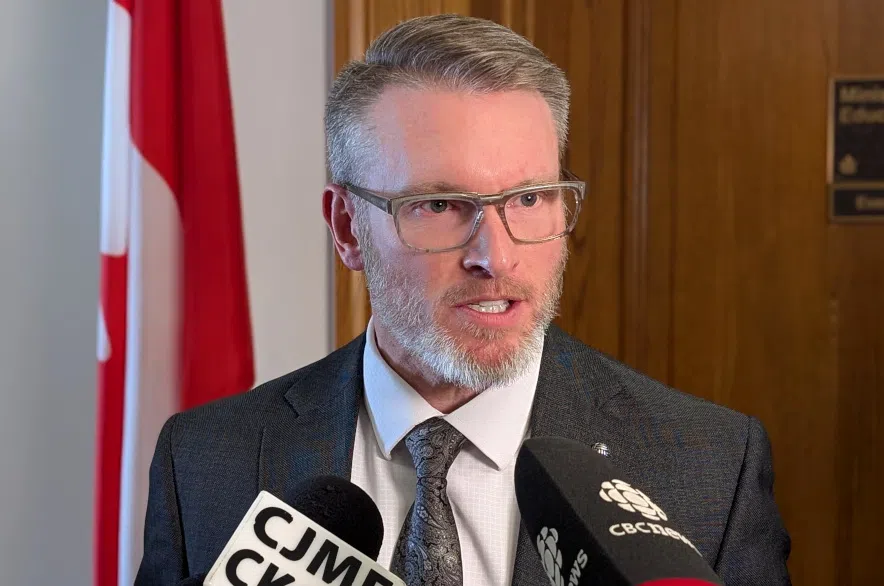Kids across Saskatchewan have been settling into their new classrooms as a new school year begins, but this year will be yet another where third parties are banned from giving presentations in sexual education classes.
Education Minister Everett Hindley said the pause remains in effect this year.
“We haven’t, as a government, made any changes with respect to that policy,” said Hindley.
Read more:
- Alberta government to release revised school library book ban
- Changes in place at Saskatoon Public Schools one year after Evan Hardy attack
- Shovels in the ground at new Harbour Landing School site after years of demand
Hindley said the ministry has had meetings about the policy with third-party groups, and the topic comes up occasionally when he speaks with school divisions.
“There is some work happening at the ministry level in conjunction with school division partners, but I wouldn’t, today, be able to say what status that that is at,” he explained.
The government had said the pause would persist until a curriculum review was done and a framework was developed to help school divisions evaluate materials for various age groups. Hindley said the issue is still a priority for the ministry, but there are a lot of competing priorities in education.
He said the province is working through the issues while also keeping an eye on other jurisdictions to see how they’re addressing them.
“I think, when we get to a place where we’re able to make some further announcements on that, we’ll do that,” said Hindley.
The pause was originally put in place after sexually explicit materials were brought into a primary school classroom. A Planned Parenthood presenter accidentally left a set of humorous but explicit ABC cards in the classroom along with other educational materials.
A short time later, the province announced the pause would extend to all third-party presentations in sexual education classrooms, except those from ministry or Saskatchewan Health Authority officials. The pause became a policy alongside other measures which require school divisions to inform parents what is being taught in sex ed. classes, and requiring parental consent for a name and gender change in school.
A number of groups spoke out against the changes at the time, concerned that students would lose access to subject matter experts in areas like grooming, sexual abuse and consent, as well as losing access to some presenters with more detailed expertise around sexual health.
According to Statistics Canada, Saskatchewan has had the highest teen pregnancy rate in Canada for the last five years that data was available (2019-2023).
Dustin Duncan, who was education minister at the time, said he didn’t think gaps in sexual education were the main driver of the teen pregnancy rate. Hindley said education plays a role in the teen pregnancy rate, but noted that some of that information is delivered through the Saskatchewan Health Authority.
“So it’s a matter of collaborating with our partners to make sure that the information that is provided out there and is provided to our students and those in the education system is important, is getting to them and helping them with the decisions that they make on these sorts of issues,” said Hindley.











